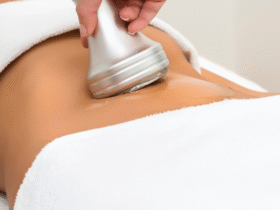Oral hygiene is something that most of us take for granted until problems start to crop up. Following some basic dental care practices can improve your oral health, helping to prevent tooth decay or gum disease. If you have any preexisting dental health condition it’s also important that you first get it treated as you may need to follow a personalized oral care routine. For instance, patients with malocclusion issues such as crowded teeth or gaps that can be corrected with the latest invisible braces, would require additional practices including regular orthodontic check-ups and consistent use of retainers. Moreover, the longer you delay care for such conditions, however, the more likely they are to worsen, leading to complications that require invasive and costly treatments. For everyone else looking to preserve or improve their oral health, here are six essential practices to adopt.
6 Essential Oral Hygiene Practices
1. Brush at least twice a day –
It’s advice you’ve probably heard before, but it bears repeating. Brushing your teeth twice a day is the most important practice for good oral health, significantly reducing plaque build-up. It’s advisable that you brush your teeth every morning and after your last meal of the day before going to bed. Brushing with the right technique is also important, so talk to your dentist or check out some instructional videos online from qualified dentists. Typically, each tooth brushing session should last about two minutes, which you’d divide equally between the lower, upper, front, and back teeth.
2. Use a water pick –
Flossing removes food debris and plaque from between teeth and under the gumline—areas your toothbrush can’t reach. While regular dental floss is sufficient for most people, a water flosser can be extremely helpful, especially for those prone to plaque build-up or with braces. However, you should keep in mind that water flossers are not always a substitute for flossing. The frequency with which you should use a water flosser can also vary greatly depending on your dental health and how rapidly plaque builds up. This is something that you should discuss with your dentist to figure out what’s right for you.
3. Get regular dental checks –
This is a practice that cannot be emphasized enough as most people delay dental visits until they develop severe toothaches and other dental problems that cause debilitating pain. Going for regular bi-annual dental visits will help with early detection of gum disease, cavities, and any dental abnormalities. During these routine visits, dental hygienists also perform cleaning to remove all plaque and tartar build-up, reducing the risk of dental decay and tooth loss.
4. Don’t eat just before bedtime –
Going to bed soon after eating and without brushing significantly increases the risk of bacterial growth which leads to plaque formation and gum disease. This is because your mouth produces less saliva during sleep and food residue can therefore remain in your mouth for longer, allowing bacteria to flourish. Additionally, the acids produced by bacteria as they break down food particles can erode tooth enamel, increasing the risk of cavities over time. For better oral health, you should stop eating or drinking anything other than water at least an hour or two before you go to bed.
5. Drink more water –
Limit your intake of sugary foods and drinks as they are associated with a higher risk of plaque, cavities, and tooth decay. Instead drink plenty of water to stay hydrated as water helps rinse away food particles and bacteria, reducing the risk of plaque and cavities. It also prevents dry mouth, a condition linked to bad breath, oral thrush, and increased risk of gum disease. Additionally, you can chew on sugarless gum to stimulate saliva production, which is also important to keep your mouth moist.
6. Quit smoking –
Consumption of any tobacco product is harmful to your oral health, raising the risk of serious gum disease and oral cancers over a period of time. Among older adults, nearly 30% of smokers have untreated cavities and tooth loss, as compared to 10% of those who never smoked. Smoking affects your oral health in different ways, directly damaging oral tissue and weakening your immune system, which also makes it harder for tissue to heal. This is why smokers face a higher risk of complications and slower healing after dental procedures. Quitting smoking is therefore an essential step towards better oral health. For support, consider resources like counseling, support groups, or programs such as Truth Initiative and YouCanQuit2.








Leave a Reply